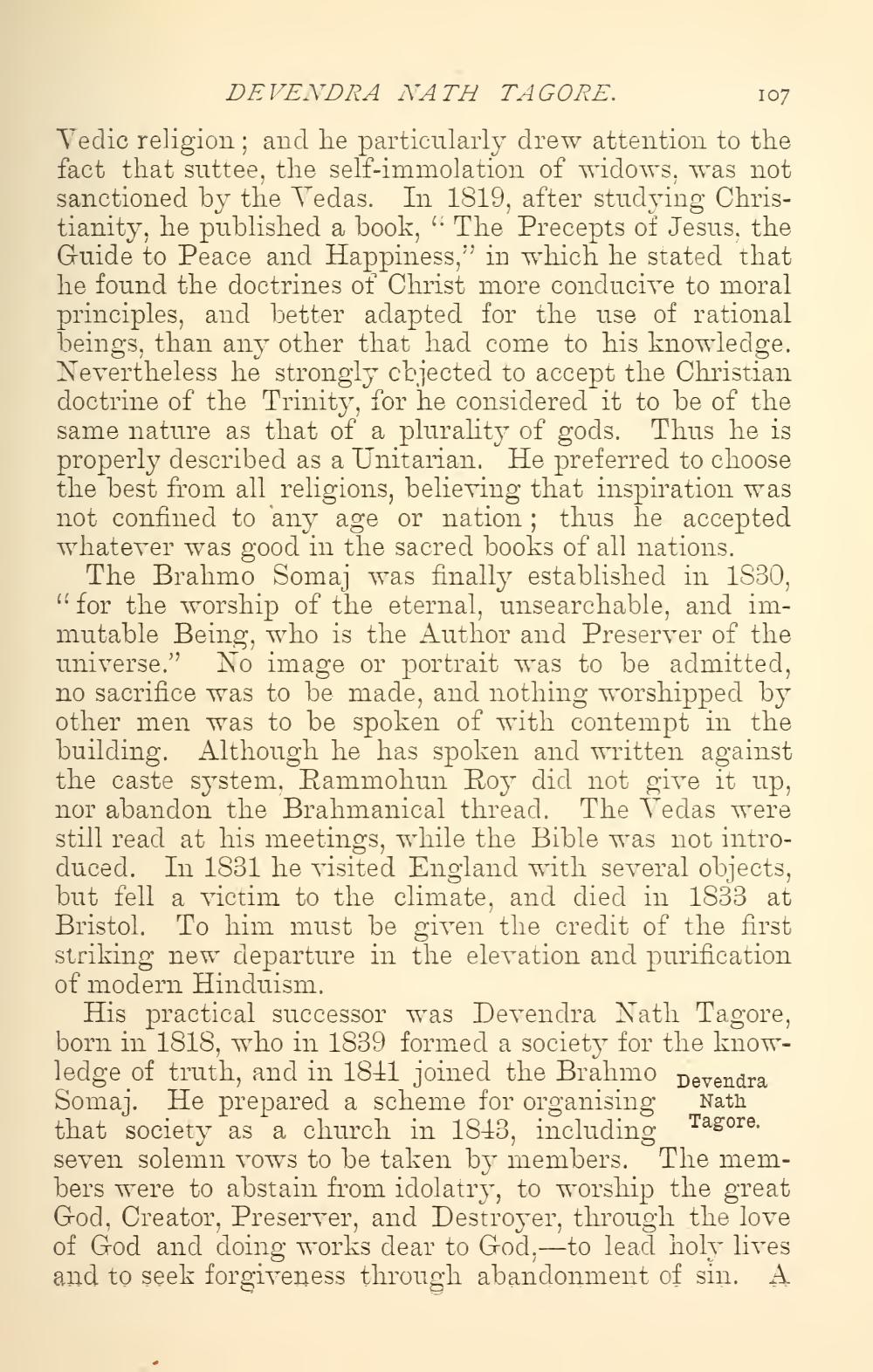________________
DEVENDRA NATH TAGORE.
107 Vedic religion; and he particularly drew attention to the fact that suttee, the self-immolation of widows, was not sanctioned by the Vedas. In 1819, after studying Christianity, he published a book, " The Precepts of Jesus, the Guide to Peace and Happiness," in which he stated that he found the doctrines of Christ more conducive to moral principles, and better adapted for the use of rational beings, than any other that had come to his knowledge. Nevertheless he strongly cbjected to accept the Christian doctrine of the Trinity, for he considered it to be of the same nature as that of a plurality of gods. Thus he is properly described as a Unitarian. He preferred to choose the best from all religions, believing that inspiration was not confined to any age or nation ; thus he accepted whatever was good in the sacred books of all nations.
The Brahmo Somaj was finally established in 1830, " for the worship of the eternal, unsearchable, and immutable Being, who is the Author and Preserver of the universe." No image or portrait was to be admitted, no sacrifice was to be made, and nothing worshipped by other men was to be spoken of with contempt in the building. Although he has spoken and written against the caste system, Rammohun Roy did not give it up, nor abandon the Brahmanical thread. The Vedas vere still read at his meetings, while the Bible was not introduced. In 1831 he visited England with several objects, but fell a victim to the climate, and died in 1833 at Bristol. To him must be given the credit of the first striking new departure in the elevation and purification of modern Hinduism.
His practical successor was Devendra Nath Tagore, born in 1818, who in 1839 formed a society for the knowledge of truth, and in 1811 joined the Brahmo De
Devendra Somaj. He prepared a scheme for organising Nath that society as a church in 1813, including Tagore, seven solemn vows to be taken by members. The members were to abstain from idolatry, to worship the great God, Creator, Preserver, and Destroyer, through the love of God and doing works dear to God, -to lead holy lives and to seek forgiveness through abandonment of sin. A




